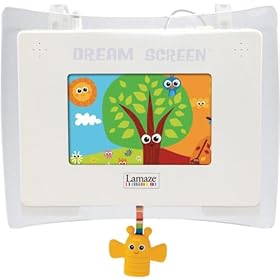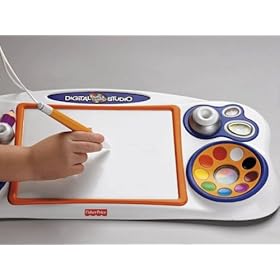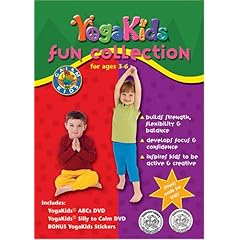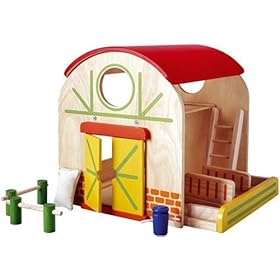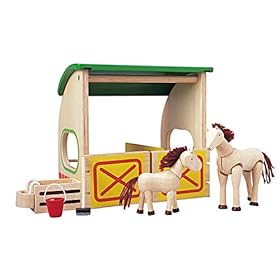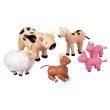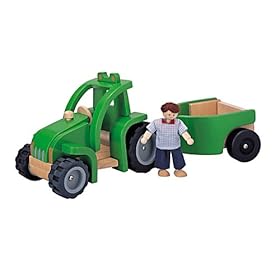A month or two ago I visited a high school class that teaches a preschool class within the high school. Basically, with one 'head teacher' the high school kids teach the preschool kids, plan lessons, etc. After observing the preschool class I was asked to come into the high school class where the other rotation of high schoolers were preparing their lessons for the following week. I was asked questions and in return was able to ask questions.
My number one most important question... What is the most important thing for children in preschool to learn? The answer I was looking for... Social Skills.
I got a decent answer about a kid learning to function in their environment which goes under the umbrella of social skills. A lot of parents these days want their children to come out of preschool reading and writing. Well, this month's Parent & Child Magazine had a little blip about this and I quote it here:
School Manners Matter
BE NICE. TAKE TURNS. LISTEN. Is your child being taught these social skills at school? It would be a wise idea, say the authors of the book The Social Skills Improvement System. Their theory: Knowing and practicing simple niceties increases academic learning because teachers have more time to devote to teaching. Here are the top 10 social skills that contribute to school success, based on the authors' survey of thousands of teachers:
1. Listening to others
2. Following the steps for each task
3. Following the rules
4. Ignoring distractions
5. Asking for help
6. Taking turns when you talk
7. Getting along with others
8. Staying calm with others
9. Being responsible for your behavior
10. Doing nice things for others
BE NICE. TAKE TURNS. LISTEN. Is your child being taught these social skills at school? It would be a wise idea, say the authors of the book The Social Skills Improvement System. Their theory: Knowing and practicing simple niceties increases academic learning because teachers have more time to devote to teaching. Here are the top 10 social skills that contribute to school success, based on the authors' survey of thousands of teachers:
1. Listening to others
2. Following the steps for each task
3. Following the rules
4. Ignoring distractions
5. Asking for help
6. Taking turns when you talk
7. Getting along with others
8. Staying calm with others
9. Being responsible for your behavior
10. Doing nice things for others
Basically, what this means is that children should enter kindergarten with these skills so that the teacher doesn't spend precious class time managing behavior. The teacher can then spend the class time teaching what needs to be taught in kindergarten such as phonics. What it boils down to is that these are the skills children should be learning in preschool, not reading, writing, and arithmetic. And, guess what, for the kids who learn that stuff in their preschool years, whether it be at home or preschool, their so called "smarts" all even out by first or second grade. In other words, children with the "educational advantage" end up on the same level as their peers in just a few short years.
So, what do you look for in a preschool? The National Association for the Education of Young Children (NAEYC) has come up with a list of criteria that their accredited programs have to pass. First of all, the program has to follow Developmentally Appropriate Practice (DAP) to be accredited. This covers a lot of stuff, but mainly, the program is centered around the children, or child-centered. This means that the lessons and activities implemented in the classroom are age-appropriate. Basically, what the kids are learning is applicable to their lives. For example, you won't see the three year olds learning about planets because they can't relate to planets. You may however see them learning about earth because they live on earth and touch, smell, see, feel, and taste things on the earth every day. Being DAP also means that teachers are aware of each individual child's skills and abilities and they plan lessons to incorporate ways to build on those skills and learn new ones. Another accreditation requirement is that programs have a low teacher to child ratio. This means that for every let's say 4 kids, there is 1 teacher. The fewer kids per teacher means that each child receives more one on one time with an adult. This also means that with more adults in the classroom, children have more opportunities to learn and explore because so many early childhood activities require adult supervision but one teacher can only do so much, with more teachers it's possible to do more each day. There is a lot that goes into being accredited by the NAEYC, but these are the most important to me in choosing a preschool.
The NAEYC has a wealth of information available for parents as well a list of accredited programs in your area. If you want more information about choosing a preschool, click on their "families" link. They also have a links to a couple dozen research reports about early childhood education that are very helpful in looking at these kinds of issues. Here is a link to a brochure put out by the NAEYC about the 10 accreditation standards if you want more information on those.
Some books on the subject that I recommend reading include:
Miseducation: Preschoolers at Risk by David Elkind (Anything by him is GREAT!)
The Power of Play by David Elkind
Theories of Childhood: an Introduction to Dewey, Montessori, Erikson, Piaget, & Vigotsky by Carol Mooney
Einstein Never Used Flashcards: How Our Children Really Learn --Why They Need to Play More and Memorize Less by Kathy Hersh-Pasek
I would also like to note here that I find it interesting how many parents rush out and buy pregnancy books when they get their first positive result but how those same parents don't read as enthusiastically about their child's development or behavior as they get older. Each stage of development is different and each child born into a family is different. To make an educated decision about finding a preschool worthy of their child, parents need a solid understanding of child development so they can understand the importance of the DAP guidelines and how the preschool could affect their child and their learning. That is why I urge parents to read these amazing books.
It is because I understand child development that I can say children need play, they learn through play, "play is a child's work" in the words of Maria Montessori. Early childhood is the only time in a person's life where play is critical and the only time they are allowed to do it. As soon as they start elementary school their lives become a daily rotation of school, homework, extracurriculars, and, if there's time, play. Through play children can act out their feelings, such as when they play house and punish others or role play to be a mom or dad. Through fantasy play children become super heros or pirates, fairies or princesses. Imaginative play and creativity involves higher thinking and is related to high intelligence. For some children preschool may be the only interaction children have with peers and they should use that time to role play and make friends in the process. It is also through play that children develop some of the social skills mentioned earlier.
Preschool is a great time for our kids, it's so fun to watch them learn and make friends. Take the time to research a school and make an educated decision on where to send your child. A child's first memory of school, whether good or bad, stays with them forever and their attitude toward school is formed early on. If you want more information, or want recommendations to my top 5 picks in Salt Lake, email me.
I would love to hear your feedback (positive or negative), so come out of the woodwork and comment! I go to great lengths for these posts sometimes (I've pulled out several books tonight to reference) and it's hard not to get feedback and see comments. I know you're out there, I see my counter at the bottom of the page going up. You are more than welcome to remain anonymous or just give a first name or initial, just please leave a comment once in awhile, it will pay off soon in a give away I'll be doing. Thanks for reading!
So, what do you look for in a preschool? The National Association for the Education of Young Children (NAEYC) has come up with a list of criteria that their accredited programs have to pass. First of all, the program has to follow Developmentally Appropriate Practice (DAP) to be accredited. This covers a lot of stuff, but mainly, the program is centered around the children, or child-centered. This means that the lessons and activities implemented in the classroom are age-appropriate. Basically, what the kids are learning is applicable to their lives. For example, you won't see the three year olds learning about planets because they can't relate to planets. You may however see them learning about earth because they live on earth and touch, smell, see, feel, and taste things on the earth every day. Being DAP also means that teachers are aware of each individual child's skills and abilities and they plan lessons to incorporate ways to build on those skills and learn new ones. Another accreditation requirement is that programs have a low teacher to child ratio. This means that for every let's say 4 kids, there is 1 teacher. The fewer kids per teacher means that each child receives more one on one time with an adult. This also means that with more adults in the classroom, children have more opportunities to learn and explore because so many early childhood activities require adult supervision but one teacher can only do so much, with more teachers it's possible to do more each day. There is a lot that goes into being accredited by the NAEYC, but these are the most important to me in choosing a preschool.
The NAEYC has a wealth of information available for parents as well a list of accredited programs in your area. If you want more information about choosing a preschool, click on their "families" link. They also have a links to a couple dozen research reports about early childhood education that are very helpful in looking at these kinds of issues. Here is a link to a brochure put out by the NAEYC about the 10 accreditation standards if you want more information on those.
Some books on the subject that I recommend reading include:
Miseducation: Preschoolers at Risk by David Elkind (Anything by him is GREAT!)
The Power of Play by David Elkind
Theories of Childhood: an Introduction to Dewey, Montessori, Erikson, Piaget, & Vigotsky by Carol Mooney
Einstein Never Used Flashcards: How Our Children Really Learn --Why They Need to Play More and Memorize Less by Kathy Hersh-Pasek
I would also like to note here that I find it interesting how many parents rush out and buy pregnancy books when they get their first positive result but how those same parents don't read as enthusiastically about their child's development or behavior as they get older. Each stage of development is different and each child born into a family is different. To make an educated decision about finding a preschool worthy of their child, parents need a solid understanding of child development so they can understand the importance of the DAP guidelines and how the preschool could affect their child and their learning. That is why I urge parents to read these amazing books.
It is because I understand child development that I can say children need play, they learn through play, "play is a child's work" in the words of Maria Montessori. Early childhood is the only time in a person's life where play is critical and the only time they are allowed to do it. As soon as they start elementary school their lives become a daily rotation of school, homework, extracurriculars, and, if there's time, play. Through play children can act out their feelings, such as when they play house and punish others or role play to be a mom or dad. Through fantasy play children become super heros or pirates, fairies or princesses. Imaginative play and creativity involves higher thinking and is related to high intelligence. For some children preschool may be the only interaction children have with peers and they should use that time to role play and make friends in the process. It is also through play that children develop some of the social skills mentioned earlier.
Preschool is a great time for our kids, it's so fun to watch them learn and make friends. Take the time to research a school and make an educated decision on where to send your child. A child's first memory of school, whether good or bad, stays with them forever and their attitude toward school is formed early on. If you want more information, or want recommendations to my top 5 picks in Salt Lake, email me.
I would love to hear your feedback (positive or negative), so come out of the woodwork and comment! I go to great lengths for these posts sometimes (I've pulled out several books tonight to reference) and it's hard not to get feedback and see comments. I know you're out there, I see my counter at the bottom of the page going up. You are more than welcome to remain anonymous or just give a first name or initial, just please leave a comment once in awhile, it will pay off soon in a give away I'll be doing. Thanks for reading!
